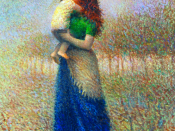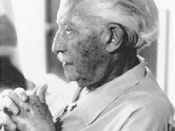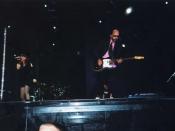Developmental Theorists
Our personality traits come in opposites. We think of ourselves as optimistic or pessimistic, independent or dependent, emotional or unemotional, adventurous or cautious, leader or follower, aggressive or passive. Many of these are inborn temperament traits, but other characteristics, such as feeling either competent or inferior, appear to be learned, based on the challenges and support we receive in growing up. The nature of psychosocial development.
The theorist that most attracts me, and who did a great deal to explore this concept is Erik Erikson. Although, Freud influenced him, he believed that the ego exists from birth and that behavior is not totally defensive. Based in part on his study of Sioux Indians on a reservation, Erikson became aware of the massive influence of culture on behavior and placed more emphasis on the external world, such as depression and wars. He felt the course of development is determined by the interaction of the body (genetic biological programming), mind (psychological), and cultural (ethos) influences.
He organized life into eight stages that extend from birth to death (many developmental theories only cover childhood). Later after his death in 1994, his wife published his theory about a ninth stage in very old age (Vander Zanden, 2003). Since adulthood covers a span of many years, Erikson divided the stages of adulthood into the experiences of young adults, adulthood, late adulthood, and very old age (Vander Zanden, 2003). While the actual ages may vary considerably from one stage to another, the ages seem to be appropriate for the majority of people.
Erikson's basic philosophy might be said to rest on two major themes: (1) the world gets bigger as we go along and (2) failure is cumulative. While the first point is fairly obvious, we might take exception to the last. True,


